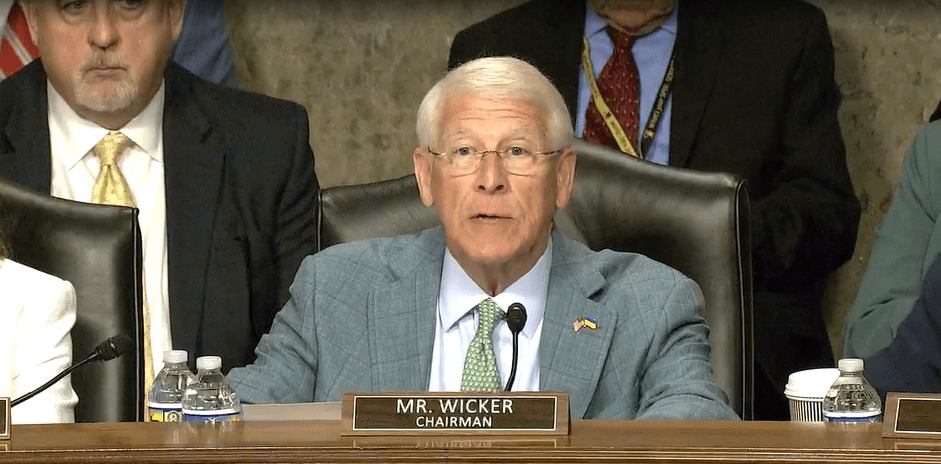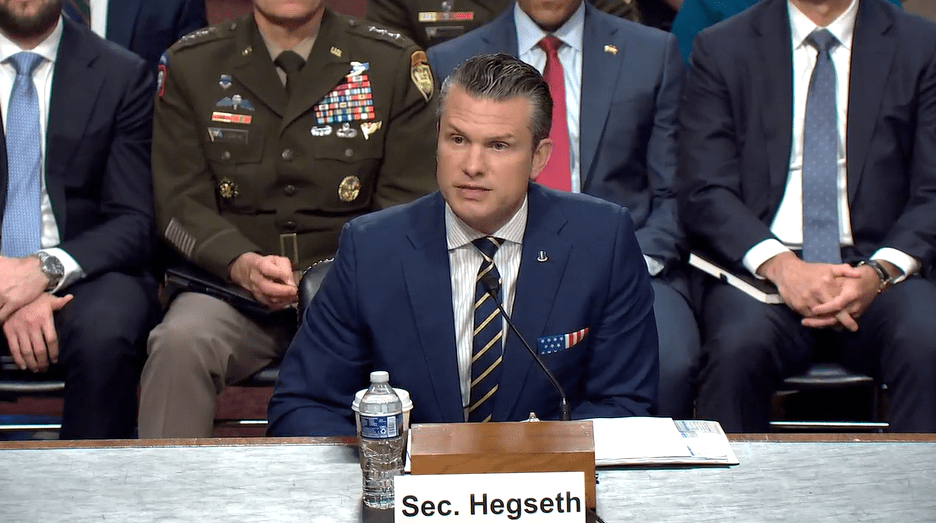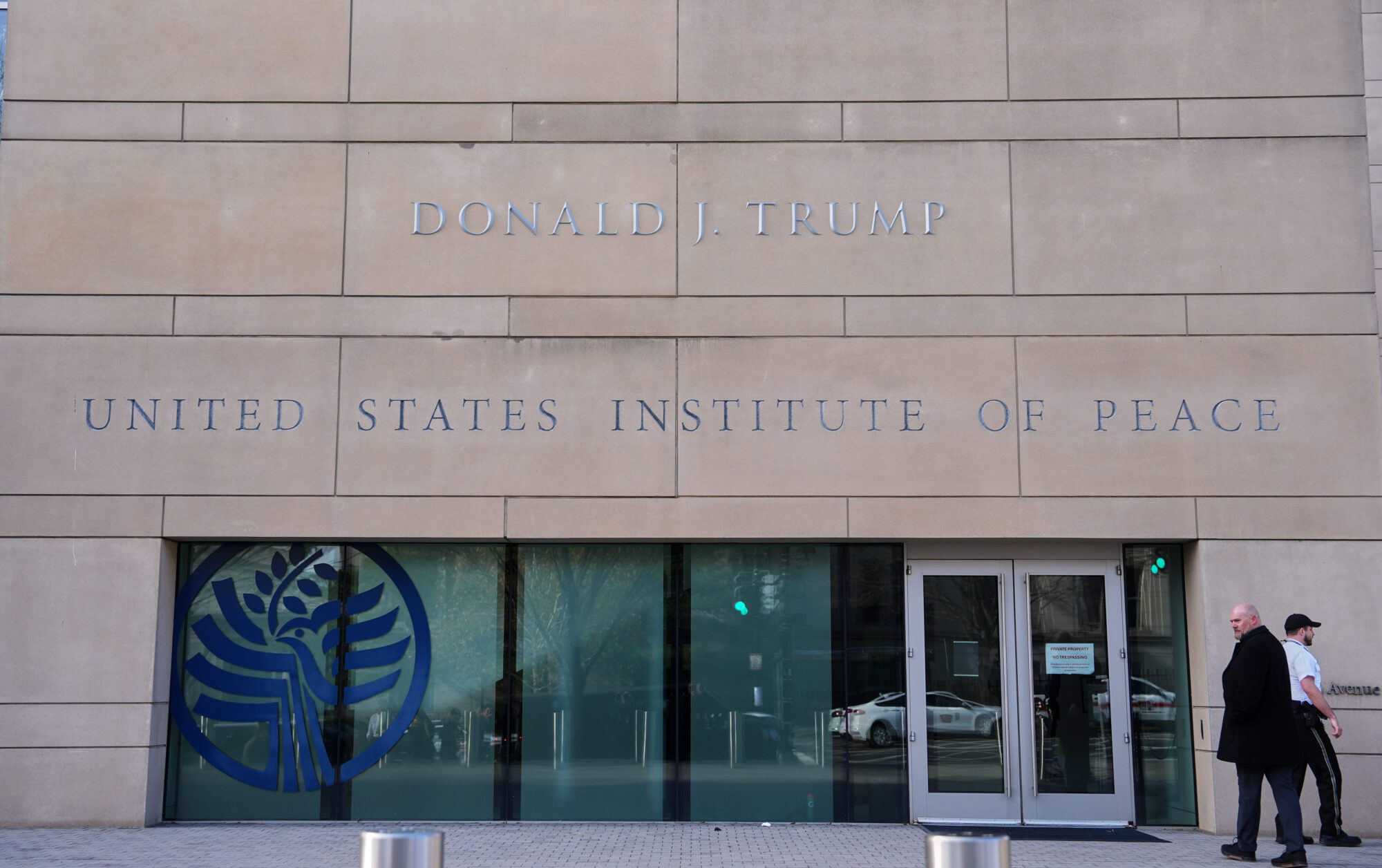
U.S. Senator Roger Wicker, chairman of Senate Armed Services (Photo from SASC hearing livestream)
- The Senate Armed Services chairman said the gaps in spending will make it more difficult to maintain America’s standing on the world stage.
U.S. Senator Roger Wicker (R) says the budget proposal submitted by the Department of Defense for the 2026 fiscal year will not deliver a military ready to face the challenges America faces today and in the future.
“Our Commander-in-Chief deserves a military capable of maintaining deterrence and applying force when necessary to protect U.S. interests as he has done in Yemen,” Wicker said, a reference to Trump’s airstrikes against the Houthis earlier this year. “I regret to say this [budget request] will not deliver that military.”
At a hearing on Wednesday, Wicker, chairman of the Senate Armed Services Committee, said the budget request presented to the committee is inadequate “with precious little detail and no follow-on data about fiscal years 2027, 2028 or 2029.”
The Mississippi Senator said the assumption is that the Office of Management and Budget (OMB) intends to maintain defense spending at $893 billion across the four years of the Trump administration.
“So, even with a one-time $150 billion reconciliation infusion, this would leave us a 2.65% of GDP by 2029,” Wicker noted, adding that the target spending as Secretary of Defense Pete Hegseth previously said was 3 percent of GDP.
Wicker said defense spending at 5 percent of GDP is what is really needed to keep pace with adversaries like China who has raised its spending by 7 percent.
“I know the Secretary fought for a stronger 2026 discretionary request,” Wicker said at the committee hearing. “But we need to acknowledge that a flat 2026 budget is what OMB delivered.”
Wicker said the gaps in spending will make it more difficult to maintain America’s standing on the world stage.

In response, Secretary Hegseth testified in “full support of President Trump’s proposed 2026 budget for the Department of Defense.”
Hegseth said the budget request makes investments in bettering living conditions in barracks and base housing, service members and their families’ relocation, and military health care.
“We are listening and always looking for ways to improve quality of life for those who serve,” Hegseth said, noting that those items rose as concerns among service members.
Hegseth said the budget “puts America first,” adding that the $961 billion request seeks to reverse course “after four years of weakness and mismanagement.” He said with the new administration coming in more time was needed to prepare the request.
“We found nearly $30 billion in savings across the department, ” Hegseth said. “And if you add this savings to our overall budget, we’re increasing the DoD budget in 2026 by $143 billion.”
He said this is being done by killing wasteful programs, cutting bureaucratic excess, and reprioritizing the department to fit President Trump’s agenda.
Hegseth noted that the proposed budget is a 13 percent increase over the fiscal year 2025 budget. He also agreed with Wicker that going below 3 percent of GDP spending would be detrimental to the department’s mission.
Senator Wicker asked Secretary Hegseth about honoring “congressional intent” as lawmakers move through the reconciliation process, to which Hegseth said his team at the DoD intends to work with lawmakers as they consider the bills making their way through the Capitol.
Wicker then asked, “Well, sir, are you qualifying your explicit yes because we have not had that from any of the other witnesses that have come before us?”
“If our congressional intent alongside the numbers in reconciliation is explicitly expressed, do you commit to following congressional intent unequivocally in reconciliation?” Wicker asked, to which Hegseth said, “Yes.”
Wicker has repeatedly said the U.S. must increase its shipbuilding as well as buildup its other military assets to keep pace with or exceed its allies and those bad actors around the world, such as China and Russia, who may seek to do harm to America.










